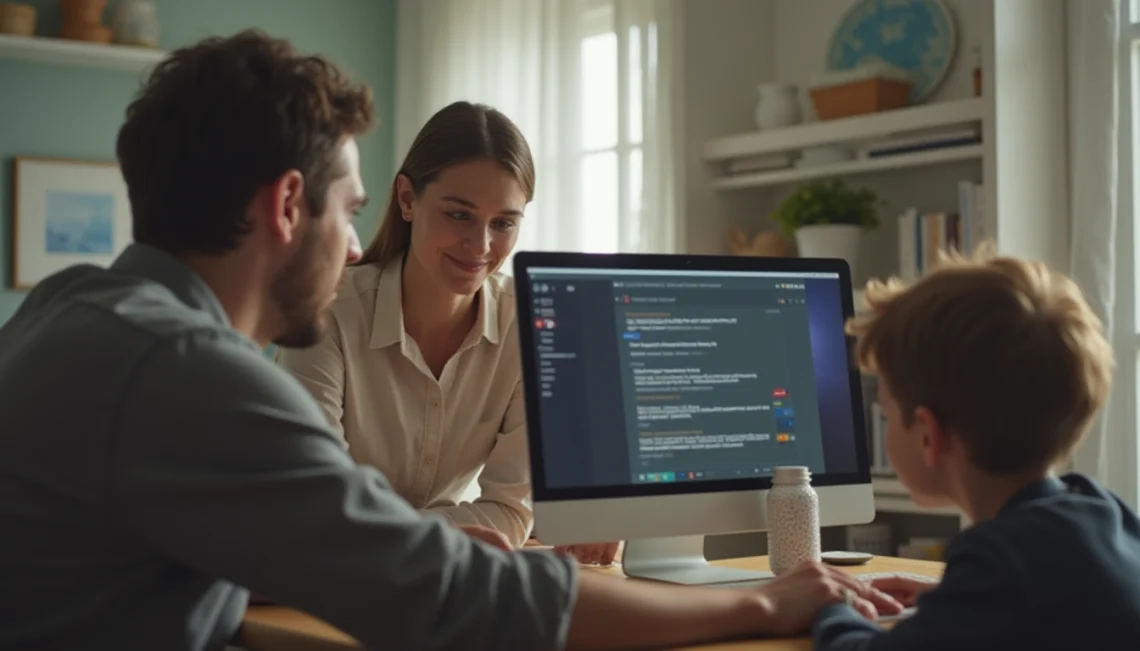In the digital age, social media has become an integral part of teenage life, serving as a platform for communication, self-expression, and social interaction. While these platforms offer numerous benefits, such as fostering connections and providing creative outlets, they also present significant risks that warrant close parental attention. Monitoring teenagers’ social media activity is not an invasion of privacy but rather a crucial measure to ensure their safety, well-being, and responsible online behavior.
Understanding the Risks of Social Media for Teens
Social media platforms can expose teens to various dangers, including cyberbullying, inappropriate content, predatory behavior, and identity theft. Cyberbullying, in particular, has become an alarming issue, with studies showing that 37% of teenagers have experienced some form of online harassment or bullying (Pew Research Center, 2018). This can lead to emotional distress, anxiety, depression, and even suicidal thoughts.
Moreover, the constant pressure to maintain a perfect online image can contribute to feelings of inadequacy and low self-esteem. Teens may compare themselves to others’ highlight reels, leading to increased stress and decreased mental well-being. Exposure to inappropriate content, such as graphic images or violent videos, can also have negative psychological impacts on young minds.
Predatory behavior, often perpetrated by adults posing as teenagers online, is another serious concern. These individuals may exploit teens’ trust and naivety to groom them for sexual exploitation or other harmful activities. Identity theft and fraud are additional risks, with personal information shared on social media profiles potentially being used for malicious purposes.
The Benefits of Monitoring Teenagers’ Social Media Activity
Proactive parental involvement in monitoring teenagers’ social media activity can help mitigate these risks and foster a safer online environment. By keeping an eye on their teens’ interactions, parents can:
- Identify potential dangers: Regularly reviewing social media posts, comments, and messages enables parents to recognize signs of cyberbullying, inappropriate content, or suspicious behavior that may indicate the presence of predators.
- Encourage responsible use: Open discussions about online safety and responsible digital citizenship can help teens develop healthy habits and make informed decisions regarding their social media activity. Monitoring serves as a reminder that their actions have consequences both online and offline.
- Strengthen family bonds: Engaging in conversations about social media usage fosters open communication, trust, and emotional intimacy between parents and teens. It also allows parents to better understand their children’s interests, challenges, and peer relationships.
- Prevent risky behaviors: Monitoring can help parents identify early warning signs of substance abuse, eating disorders, or other harmful activities that may be discussed or encouraged within social media circles.
- Protect online reputation: Teens’ social media posts can have long-lasting impacts on their future prospects, including college admissions and job opportunities. By encouraging mindful posting and deleting inappropriate content, parents can help safeguard their children’s online reputations.
Establishing a Balance Between Monitoring and Trust
While monitoring teenagers’ social media activity is essential for their safety, it is crucial to strike a balance between oversight and trust. Establishing clear guidelines, such as requiring teens to share their passwords or approving new friend requests, can help ensure parental involvement without compromising teens’ sense of autonomy.
Open communication about the reasons behind monitoring is also key. Explain your concerns and the importance of keeping them informed about online interactions. Emphasize that your goal is to protect rather than invade their privacy.
Ultimately, monitoring should be a temporary measure designed to guide teens towards responsible digital citizenship. As they mature and develop better judgment, parents can gradually loosen restrictions while continuing to encourage open dialogue about online safety.
Conclusion
In the rapidly evolving world of social media, it is more important than ever for parents to play an active role in monitoring their teenagers’ online activity. By staying informed about their children’s interactions, parents can mitigate risks, foster responsible behavior, and strengthen family bonds. While privacy concerns are valid, they pale in comparison to the potential dangers lurking on unsupervised social media platforms.
By engaging in open communication, setting clear guidelines, and using appropriate monitoring tools, parents can create a safe online environment that supports their teens’ healthy development. In doing so, they not only protect their children from harm but also equip them with the skills needed to navigate the digital world responsibly as they grow into adulthood.



